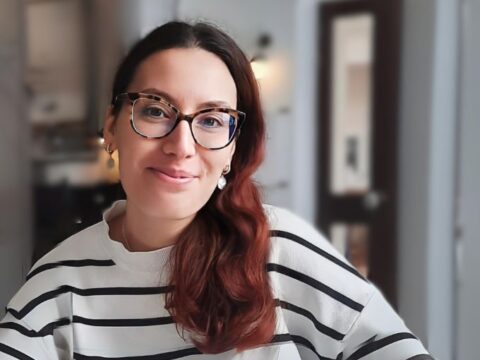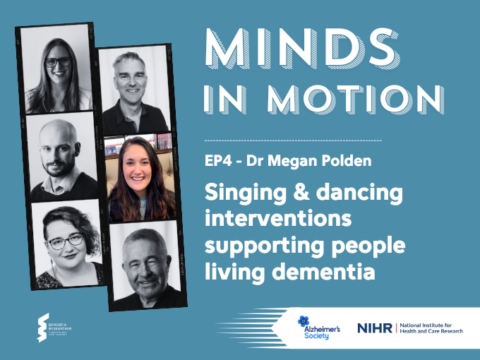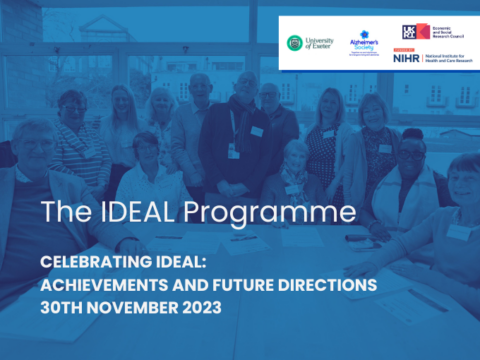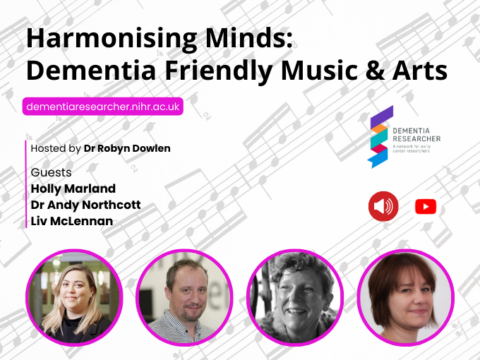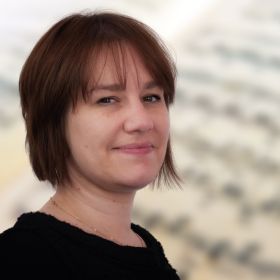
Liv McLennan
Name:
Liv McLennan
Job Title:
Co-Director; community musician; creative practitioner; doctoral student
Place of work / study:
Freelancer; co-director Sounds Better CIC; PhD student Guildhall School of Music and Drama
Area of Research:
Intergenerational Music Making Care Homes (is my research area). I returned to studying about 16 years after finishing my undergraduate, diving straight into a PhD. I study part time alongside freelancing, and am in my 5th year of postgraduate research studies. I am engaged in practice research and am attempting to develop community music practice research as a method/ology alongside using arts based research methods, including stop motion playmobil.
How is your research funded:
N/A
Tell us a little about yourself:
I run a social enterprise that works musically with people with long term conditions, intergenerational communities and people with learning disability. We also offer training in these areas. We are committed to expanding arts participation in rural areas and areas of multiple deprivation. As a freelance creative practitioner, in addition to the groups with through Sounds Better CIC, I also work with children & families in early childhood and heritage organisations such as Historic Royal Palaces, Museum of London, Leighton House Museum and Salisbury Museum.
I deliver training in community music, dementia, circle dance in dementia, and early years music. I have been a community musician for 15 years and am always looking to expand the art forms and approaches I use to enable me to connect with others in a person-centred way. Although I am proud of the paid work I do, my greatest achievement is my daughter, who brings me joy every day.
Tell us a fun fact about yourself:
I play the highland bagpipes!
Why did you choose to work in dementia:
My nan was diagnosed with dementia in the mid 90s, but had been experiencing the symptoms many years prior to diagnosis. Sadly I was not very knowledgable about dementia as a teenager, but continued to spend time with nan and enjoy her company. I turned this around in my 20s, working for the Alzheimer’s Society for a while after leaving the army, and gaining much more knowledge and skills. I vowed that my nan’s legacy would be for me to help improve lives of others living with dementia and those who care for them. I found I could do that best through my music and other creative arts, and now I train others both in dementia and in working creatively alongside people with dementia as well as researching in a related field.
What single piece of advice would you give to an early career researcher?
I can only speak as a part time doctoral student, but what I have learned so far is that it is incredibly important to protect your study /research time.As a freelancer, it is always tempting to say yes to paid work, but this means your research often gets put on hold. Try to maintain those boundaries and do protect your time! I must also try and listen to this advice…!
What book are you reading right now? Would you recommend it?
Doing rebellious research in and beyond the academy. Eds. Pamela Barnard, Elizabeth Mackinlay, David Rousell, Tatiana Dragovic. I would definitely recommend it to any fellow rebel!
Can we find you on Twitter & Instagram?
Follow @SoundsBetterCIC
Follow @omniphonik_liv on Instagram

 Print This Post
Print This Post